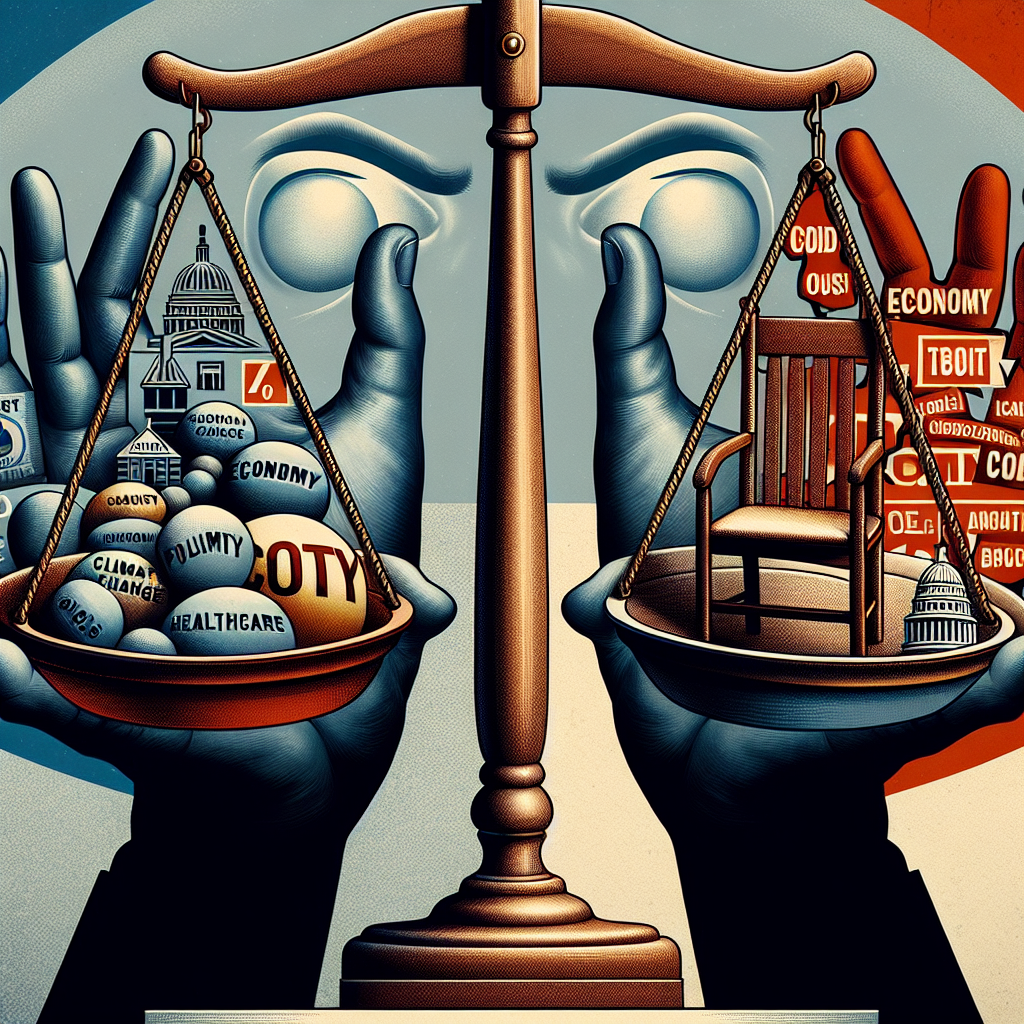As the political landscape shifts leading up to the upcoming elections, Democrats are increasingly concerned about their control of both the White House and the U.S. Senate. Recent developments have spotlighted their anxiety about losing the Senate, particularly in light of new polling trends that favor Republican candidates, indicating a potential shift in power. Panic seems to be setting in within the Democratic Party, as they grasp the implications of a Republican-controlled Senate should Donald Trump be re-elected. This scenario would significantly strengthen Trump’s position and diminish the authority of current Senate Majority Leader Chuck Schumer, accentuating the urgency for Democrats to bolster their campaigns.
Recent polling data from critical battleground states, notably Ohio and Wisconsin, paints a worrisome picture for Democrats. In Ohio, incumbent Senator Sherrod Brown is trailing behind his Republican challenger, Bernie Moreno, highlighting the fragility of the Democrats’ hold on this crucial seat. Polls from RMG Research and ActiVote reveal a consistent lead for Moreno, suggesting that the Democratic establishment is losing ground in its efforts to maintain Senate control. With the election date approaching rapidly, the narrowing margins indicate that Democrats are under pressure, which has prompted them to amplify their fundraising efforts and mobilize resources in an attempt to counteract the momentum generated by Republican campaigns.
The increasing success of Republican candidates is particularly troubling for the Democrats, as it not only threatens individual Senate races but also jeopardizes the party’s broader legislative agenda. Predictably, Democrats are recognizing the importance of maintaining a unified front to combat GOP advances. The atmosphere of concern within the party was reflected in an email from the Ohio Democratic Party, which plainly stated, “This is bad,” underscoring the urgency of their situation as they attempt to prevent Moreno from gaining further traction. Such admissions reveal the internal struggles that the party is confronting while trying to navigate through a challenging political climate.
Beyond the immediate electoral implications, the potential for a Republican-controlled Senate poses significant concerns for the Democratic Party’s future strategies. As political analysts suggest, control of the Senate would allow Republicans to shape legislative priorities that could potentially roll back key Democratic initiatives. The reality of losing the Senate majority weighs heavily on Democratic leaders, who are acutely aware that this shift could translate into substantial power for Mitch McConnell—or any other Republican leader—thus mandating a recalibration of Democratic approaches in both communicating strategies and crafting policies that resonate with voters.
Although Democrats are attempting to rally support and resources in battleground states to remain competitive, the persistence of Republican polling leads casts a long shadow over their efforts. To counteract the looming threat of losing both the Senate and the presidency, the party is engaging in coordinated campaigns aimed at voter mobilization and fundraising to build a more robust electoral base. However, the success of these efforts is contingent on whether they can effectively address the concerns of constituents and present compelling narratives that resonate with a diverse electorate facing a myriad of challenges.
As the elections draw closer, the shifting dynamics within the Senate race underscore the critical nature of voter engagement and messaging for the Democratic Party. Recognizing the stake at play, Republicans are capitalizing on the perceived vulnerabilities of their Democratic opponents, thereby intensifying the pressure on the party to devise persuasive arguments in favor of their incumbents. Ultimately, the impending elections represent a pivotal moment for Democrats, who must not only defend their current positions but also inspire confidence and unity among their base to avoid potential electoral setbacks that could permanently alter the balance of power in Washington.

